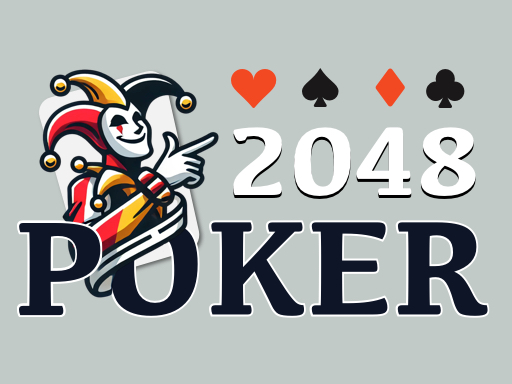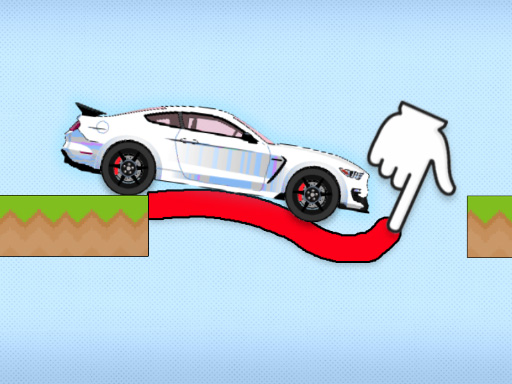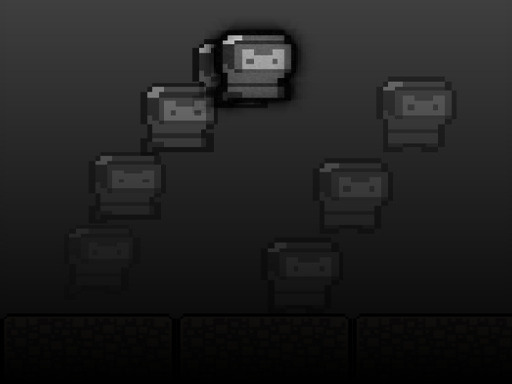Sudoku: The Logic Vaul
About Sudoku: The Logic Vaul
Hey, listen, you know how we’re always on the hunt for that next game, that one that just *clicks* with you, the kind that makes you lose track of time and suddenly it’s 3 AM and you’re wondering where the last six hours went? Well, I’ve found it. Seriously. And I know, I know, when I tell you what it is, you’re probably going to roll your eyes a little, but you absolutely *have* to hear me out on this one. Because I promise you, this isn't just *a* game; it's an experience, a journey into pure, unadulterated logical bliss.
It’s called Sudoku: The Logic Vaul. And yeah, I know, Sudoku. That newspaper puzzle your grandma does, right? That’s what I thought too, initially. I mean, I’ve always been drawn to games that make you think, that demand a certain kind of mental gymnastics, whether it’s the intricate strategy of a grand RPG or the lightning-fast problem-solving of a competitive shooter. But a Sudoku game? I was skeptical, to say the least. My brain usually craves explosions and epic narratives. But there’s something truly magical about this particular iteration, something that transcends the simple number grid and elevates it into a genuinely compelling gaming experience.
The first time I really dove in, I picked the smallest board, the 4x4, just to get a feel for it. And honestly, it was like a gentle hand reaching out, guiding me into this quiet, focused space. It’s not about speed or reflexes; it’s about observation, deduction, and that incredibly satisfying moment when a number slots perfectly into place, not because you guessed it, but because you *knew* it had to go there. You can almost feel the gears turning in your head, a soft, rhythmic *click* as each piece of information locks into position. The interface is so clean, so unobtrusive, that it just disappears, leaving you alone with the grid, your thoughts, and the elegant dance of numbers. It’s like the game understands that any visual clutter would just break the spell, and it respects your focus completely.
But that 4x4, that’s just the appetizer, you know? It’s the friendly handshake before the real challenge begins. You quickly move up to the 6x6, and suddenly, the landscape shifts. It’s not just bigger; it’s deeper. The possibilities expand, the pathways diverge, and you find yourself needing to hold more information in your mind at once. This is where the game really starts to flex its muscles, and where my initial skepticism completely evaporated. What’s fascinating is how the difficulty scales. You start with Basic, which is a lovely warm-up, a gentle nudge into the logic. Then Normal steps it up, asking a bit more of you, demanding you look a little harder, think a little deeper. But then you hit Hard, and oh man, that’s when the real fun begins. The grid, which once seemed so straightforward, now presents these delicious little knots of possibility, these tantalizing dead ends that force you to re-evaluate, to zoom out and then back in. And Expert? That’s when you’re in the dojo, facing a sensei. That’s when the puzzle isn’t just a puzzle; it’s a personal challenge, a test of your mental fortitude.
The brilliant thing about this game, what truly elevates it beyond just another Sudoku app, are these ingenious features they’ve built in. Let’s talk about the smart NOTES first. You know that feeling in a detective game, right? When you’re sifting through clues, jotting down possibilities, eliminating suspects one by one until only the truth remains? That’s exactly what using the smart NOTES feels like. When you’re staring at a cell and you know it *could* be a 2, a 5, or an 8, you just tap those numbers in as little possibilities. The game keeps track of them for you, subtly, without cluttering the screen. And then, as you deduce other numbers, those notes automatically vanish from cells where they’re no longer possible. It’s not cheating; it’s like having a hyper-efficient, silent assistant right there in your brain, managing the mental load so you can focus on the *deduction* itself. It frees you up to really dig into the logic, to explore those branching paths of possibility without getting bogged down by manual tracking. It’s such a simple concept, but it fundamentally changes the experience, transforming it from a tedious chore into a fluid, investigative process.
And then, when you’re deep in the trenches, when you’ve been staring at a particularly stubborn 9x9 Expert grid for what feels like an eternity, and that familiar doubt starts to creep in – "Did I make a mistake five moves ago? Is this whole thing built on a faulty premise?" – that’s when the real magic happens. There’s this brilliant little ‘CHECK’ button. You tap it, and it doesn't just tell you if you're wrong; it actively *helps* you. It removes any incorrect inputs you might have made, clearing the board of your errors, and here’s the kicker: it locks in all the correct numbers you’ve placed so far. Think about that for a second. It’s not a punitive slap on the wrist; it’s a gentle re-calibration, a way to clear the fog and give you a fresh, solid foundation to continue. It’s like the game is saying, "Okay, you went a bit off track, but no worries, let's reset to a known good state and keep going." That moment of validation, that sigh of relief as the incorrect numbers vanish and the correct ones solidify, is incredibly satisfying. It helps you stay focused, prevents that spiraling frustration, and keeps the flow going. In my experience, the best moments in gaming come when a system supports your learning and exploration, rather than punishing every misstep, and this ‘CHECK’ feature absolutely nails that.
Honestly, the whole package is just so well-thought-out. The controls are intuitive to the point of being invisible. You tap a cell, tap a number, and it’s there. It’s seamless. There’s no fiddling, no wrestling with clumsy UI. It’s just you and the puzzle. And the design, it’s not flashy, it’s not trying to distract you with bells and whistles. It’s clean, elegant, and serves the purpose of pure, focused brain training. It’s the perfect blend of relaxation and mental workout. You know that feeling when you’re so absorbed in something that the outside world just fades away? That’s what this game does. It’s almost meditative. You can put on some chill music, lean back, and just let your brain untangle these beautiful, intricate webs of logic.
What I love about games like this is the sheer satisfaction of a breakthrough. That sudden rush of clarity when a pattern finally reveals itself, when a previously impenetrable section of the grid suddenly opens up, and you see the solution unfold before your eyes. It’s a quiet triumph, a personal victory that feels incredibly rewarding. It’s not the adrenaline of a headshot or the roar of a crowd, but a deeper, more profound sense of accomplishment, like you’ve just cracked a secret code. And the fact that every single grid offers a fresh challenge, even on the same difficulty level, means the replayability is through the roof. You’re never just going through the motions; your mind is always engaged, always seeking that next logical leap.
This makes me wonder, actually, about how much we sometimes overlook the simpler joys in gaming. We chase the next big open world, the most stunning graphics, the most complex narratives, and sometimes we forget the pure, unadulterated pleasure of a well-crafted puzzle. Sudoku: The Logic Vaul isn't trying to be anything it's not. It's not trying to reinvent the wheel; it's just perfecting it. It takes a classic, timeless puzzle and polishes it to an absolute sheen, adding quality-of-life features that enhance the experience without ever feeling like they're doing the work for you. It respects your intelligence, challenges your mind, and provides a genuinely rewarding escape.
So yeah, next time you’re looking for something to scratch that mental itch, something that will genuinely engage your brain and give you that satisfying *click* of understanding, seriously, give this a shot. Forget what you *think* you know about Sudoku. This isn't your grandma's newspaper puzzle. This is a finely tuned, elegantly designed logic vault, waiting for you to crack it open. And trust me, when you finally clear that Expert 9x9 grid, after meticulously placing every number, after using those smart NOTES and perhaps a strategic 'CHECK' or two, the feeling of accomplishment is just... chef's kiss. You’ve gotta try it. You really, really do.
It’s called Sudoku: The Logic Vaul. And yeah, I know, Sudoku. That newspaper puzzle your grandma does, right? That’s what I thought too, initially. I mean, I’ve always been drawn to games that make you think, that demand a certain kind of mental gymnastics, whether it’s the intricate strategy of a grand RPG or the lightning-fast problem-solving of a competitive shooter. But a Sudoku game? I was skeptical, to say the least. My brain usually craves explosions and epic narratives. But there’s something truly magical about this particular iteration, something that transcends the simple number grid and elevates it into a genuinely compelling gaming experience.
The first time I really dove in, I picked the smallest board, the 4x4, just to get a feel for it. And honestly, it was like a gentle hand reaching out, guiding me into this quiet, focused space. It’s not about speed or reflexes; it’s about observation, deduction, and that incredibly satisfying moment when a number slots perfectly into place, not because you guessed it, but because you *knew* it had to go there. You can almost feel the gears turning in your head, a soft, rhythmic *click* as each piece of information locks into position. The interface is so clean, so unobtrusive, that it just disappears, leaving you alone with the grid, your thoughts, and the elegant dance of numbers. It’s like the game understands that any visual clutter would just break the spell, and it respects your focus completely.
But that 4x4, that’s just the appetizer, you know? It’s the friendly handshake before the real challenge begins. You quickly move up to the 6x6, and suddenly, the landscape shifts. It’s not just bigger; it’s deeper. The possibilities expand, the pathways diverge, and you find yourself needing to hold more information in your mind at once. This is where the game really starts to flex its muscles, and where my initial skepticism completely evaporated. What’s fascinating is how the difficulty scales. You start with Basic, which is a lovely warm-up, a gentle nudge into the logic. Then Normal steps it up, asking a bit more of you, demanding you look a little harder, think a little deeper. But then you hit Hard, and oh man, that’s when the real fun begins. The grid, which once seemed so straightforward, now presents these delicious little knots of possibility, these tantalizing dead ends that force you to re-evaluate, to zoom out and then back in. And Expert? That’s when you’re in the dojo, facing a sensei. That’s when the puzzle isn’t just a puzzle; it’s a personal challenge, a test of your mental fortitude.
The brilliant thing about this game, what truly elevates it beyond just another Sudoku app, are these ingenious features they’ve built in. Let’s talk about the smart NOTES first. You know that feeling in a detective game, right? When you’re sifting through clues, jotting down possibilities, eliminating suspects one by one until only the truth remains? That’s exactly what using the smart NOTES feels like. When you’re staring at a cell and you know it *could* be a 2, a 5, or an 8, you just tap those numbers in as little possibilities. The game keeps track of them for you, subtly, without cluttering the screen. And then, as you deduce other numbers, those notes automatically vanish from cells where they’re no longer possible. It’s not cheating; it’s like having a hyper-efficient, silent assistant right there in your brain, managing the mental load so you can focus on the *deduction* itself. It frees you up to really dig into the logic, to explore those branching paths of possibility without getting bogged down by manual tracking. It’s such a simple concept, but it fundamentally changes the experience, transforming it from a tedious chore into a fluid, investigative process.
And then, when you’re deep in the trenches, when you’ve been staring at a particularly stubborn 9x9 Expert grid for what feels like an eternity, and that familiar doubt starts to creep in – "Did I make a mistake five moves ago? Is this whole thing built on a faulty premise?" – that’s when the real magic happens. There’s this brilliant little ‘CHECK’ button. You tap it, and it doesn't just tell you if you're wrong; it actively *helps* you. It removes any incorrect inputs you might have made, clearing the board of your errors, and here’s the kicker: it locks in all the correct numbers you’ve placed so far. Think about that for a second. It’s not a punitive slap on the wrist; it’s a gentle re-calibration, a way to clear the fog and give you a fresh, solid foundation to continue. It’s like the game is saying, "Okay, you went a bit off track, but no worries, let's reset to a known good state and keep going." That moment of validation, that sigh of relief as the incorrect numbers vanish and the correct ones solidify, is incredibly satisfying. It helps you stay focused, prevents that spiraling frustration, and keeps the flow going. In my experience, the best moments in gaming come when a system supports your learning and exploration, rather than punishing every misstep, and this ‘CHECK’ feature absolutely nails that.
Honestly, the whole package is just so well-thought-out. The controls are intuitive to the point of being invisible. You tap a cell, tap a number, and it’s there. It’s seamless. There’s no fiddling, no wrestling with clumsy UI. It’s just you and the puzzle. And the design, it’s not flashy, it’s not trying to distract you with bells and whistles. It’s clean, elegant, and serves the purpose of pure, focused brain training. It’s the perfect blend of relaxation and mental workout. You know that feeling when you’re so absorbed in something that the outside world just fades away? That’s what this game does. It’s almost meditative. You can put on some chill music, lean back, and just let your brain untangle these beautiful, intricate webs of logic.
What I love about games like this is the sheer satisfaction of a breakthrough. That sudden rush of clarity when a pattern finally reveals itself, when a previously impenetrable section of the grid suddenly opens up, and you see the solution unfold before your eyes. It’s a quiet triumph, a personal victory that feels incredibly rewarding. It’s not the adrenaline of a headshot or the roar of a crowd, but a deeper, more profound sense of accomplishment, like you’ve just cracked a secret code. And the fact that every single grid offers a fresh challenge, even on the same difficulty level, means the replayability is through the roof. You’re never just going through the motions; your mind is always engaged, always seeking that next logical leap.
This makes me wonder, actually, about how much we sometimes overlook the simpler joys in gaming. We chase the next big open world, the most stunning graphics, the most complex narratives, and sometimes we forget the pure, unadulterated pleasure of a well-crafted puzzle. Sudoku: The Logic Vaul isn't trying to be anything it's not. It's not trying to reinvent the wheel; it's just perfecting it. It takes a classic, timeless puzzle and polishes it to an absolute sheen, adding quality-of-life features that enhance the experience without ever feeling like they're doing the work for you. It respects your intelligence, challenges your mind, and provides a genuinely rewarding escape.
So yeah, next time you’re looking for something to scratch that mental itch, something that will genuinely engage your brain and give you that satisfying *click* of understanding, seriously, give this a shot. Forget what you *think* you know about Sudoku. This isn't your grandma's newspaper puzzle. This is a finely tuned, elegantly designed logic vault, waiting for you to crack it open. And trust me, when you finally clear that Expert 9x9 grid, after meticulously placing every number, after using those smart NOTES and perhaps a strategic 'CHECK' or two, the feeling of accomplishment is just... chef's kiss. You’ve gotta try it. You really, really do.
Enjoy playing Sudoku: The Logic Vaul online for free on Qotori games. This Puzzle game offers amazing gameplay and stunning graphics. No downloads required, play directly in your browser!
How to Play
Use a mouse or touchpad to select a cell then choose a number from the on-screen number pad to fill it in Use the Note button to toggle pencil marks and tap Check to validate your entries mdash incorrect numbers are removed and correct ones are lock





Comments
This game is awesome! I love the graphics and gameplay.
One of the best games I've played recently. Highly recommended!